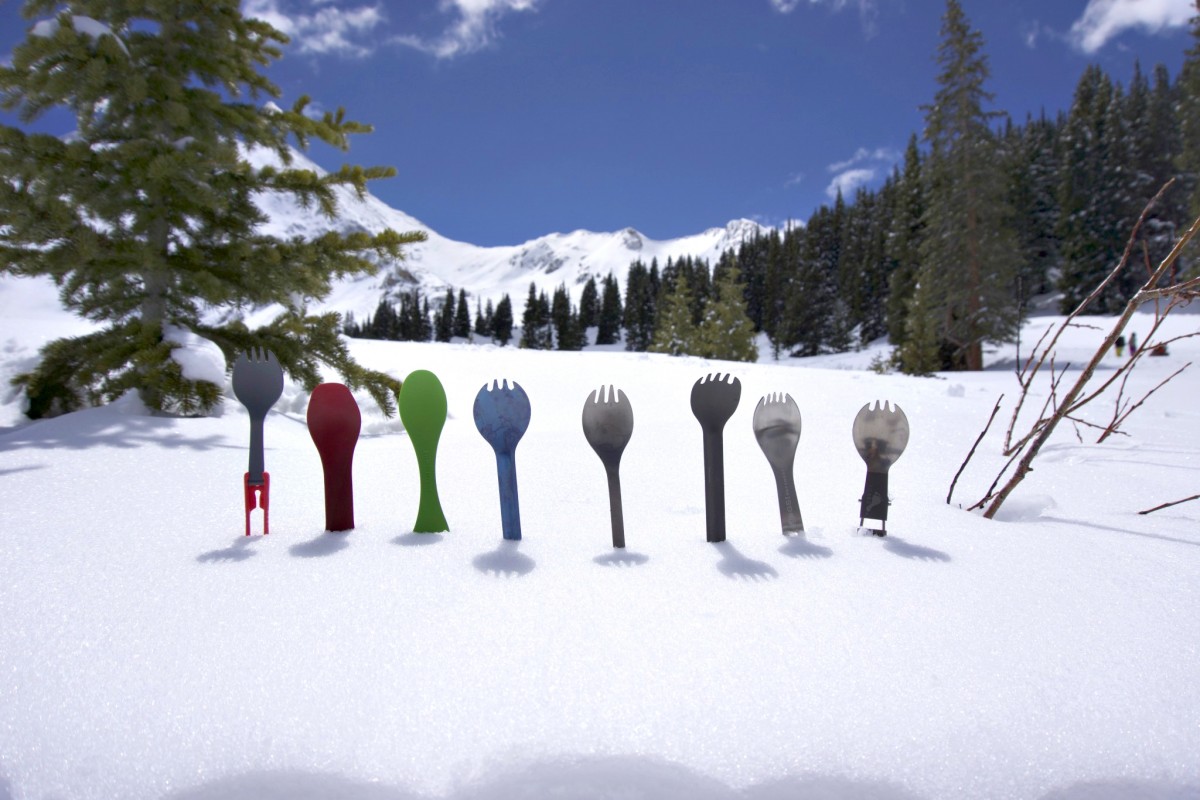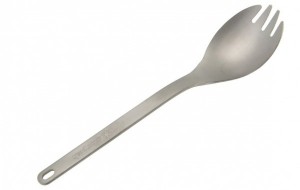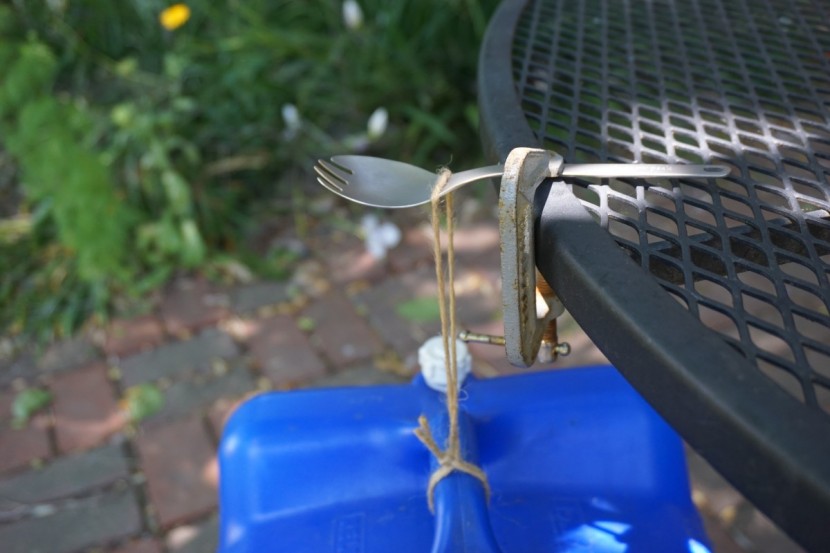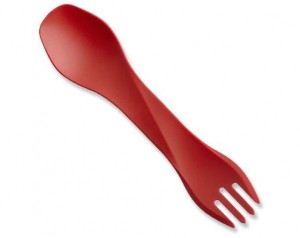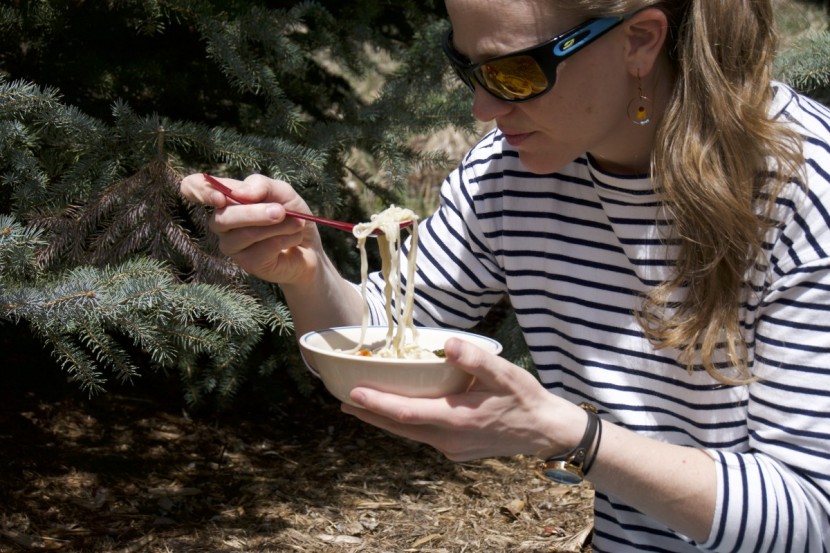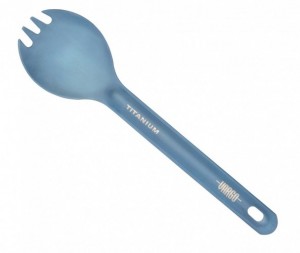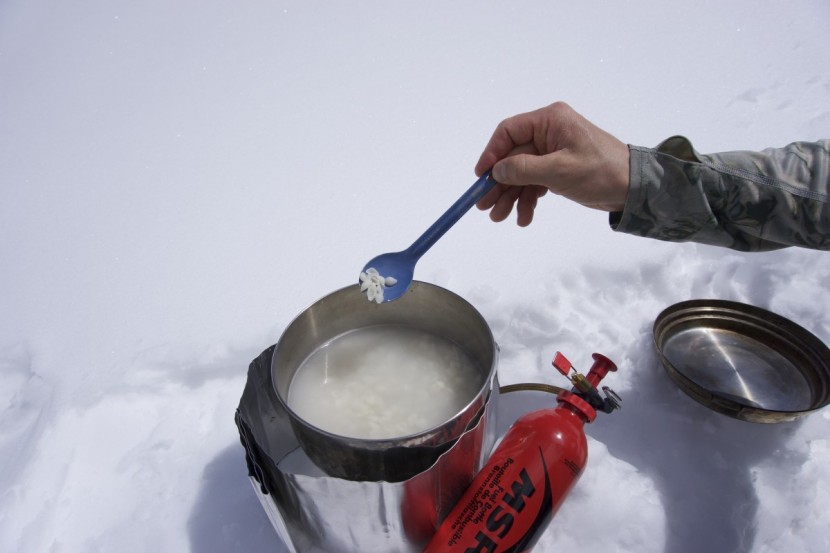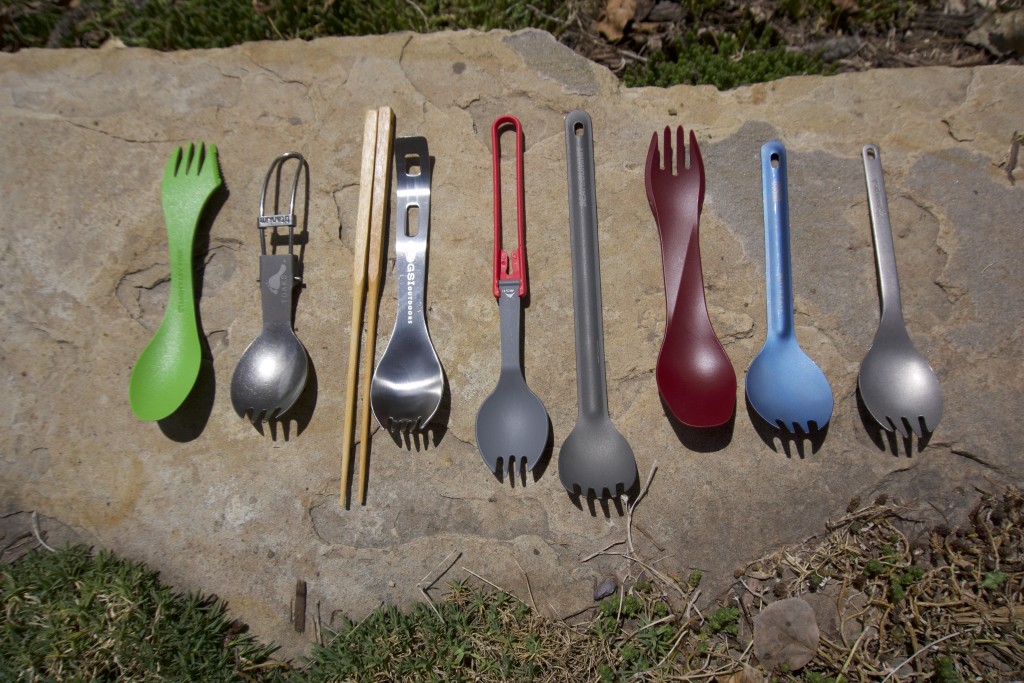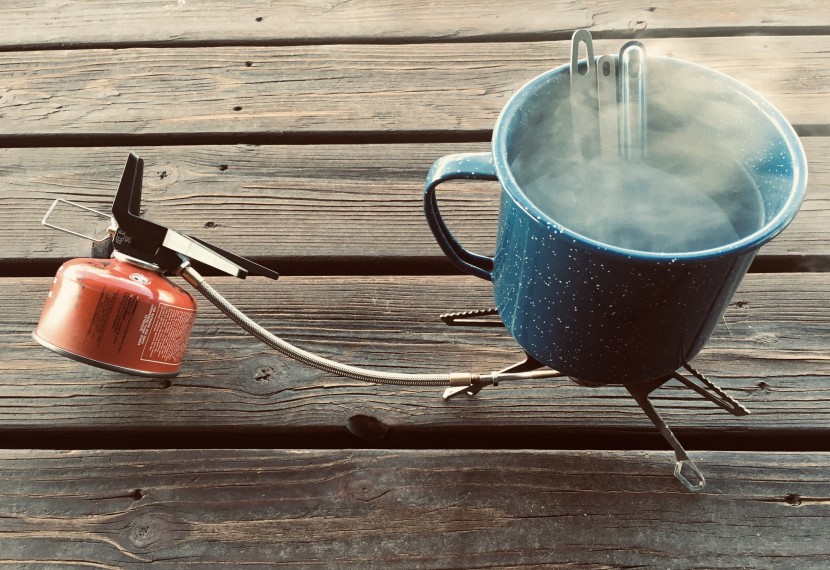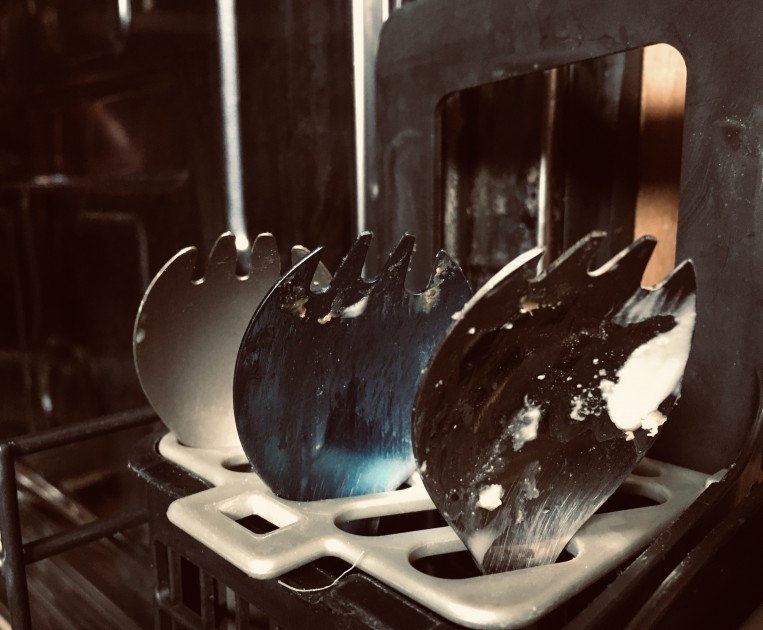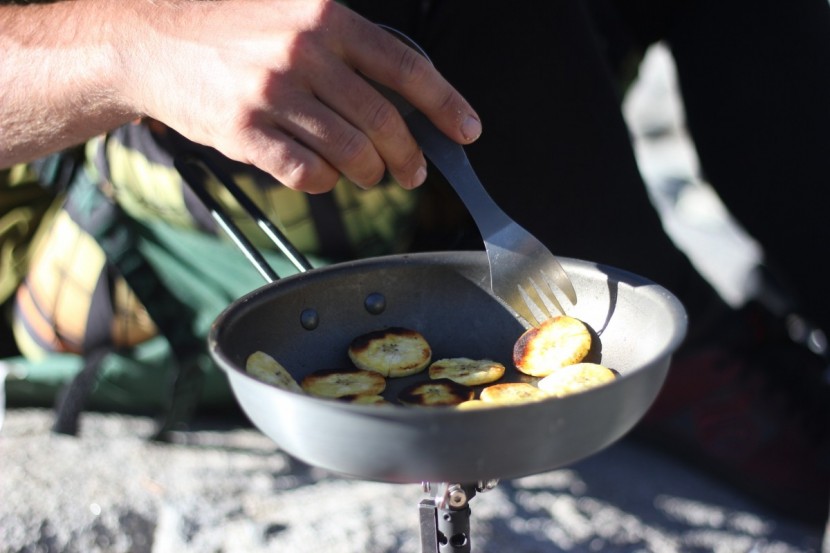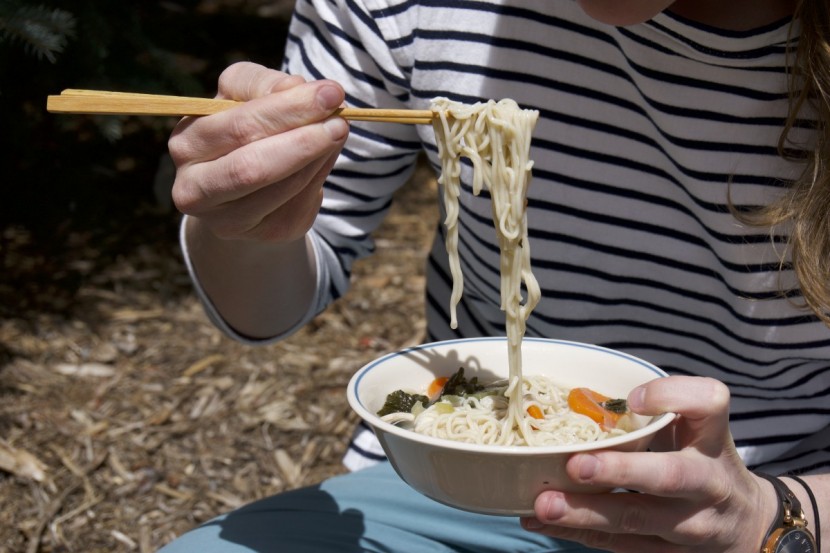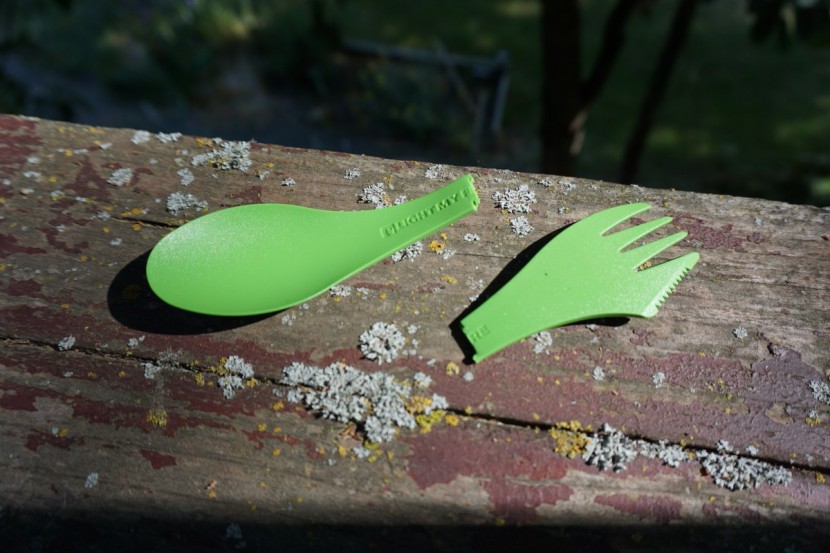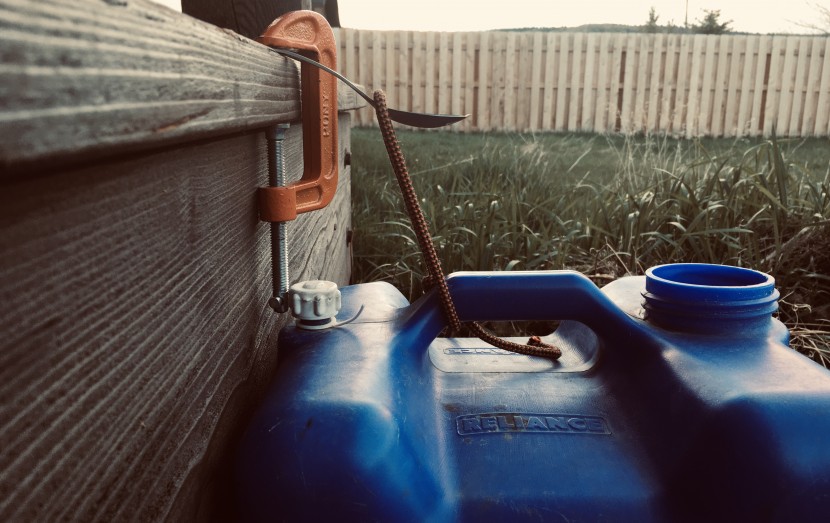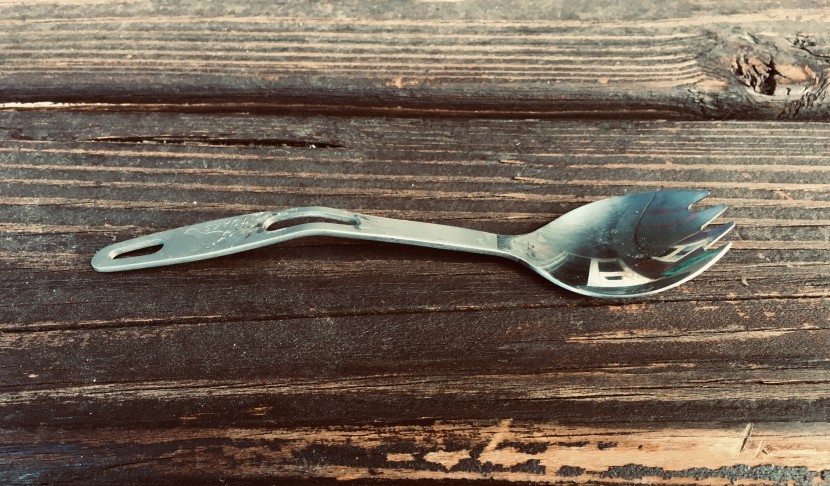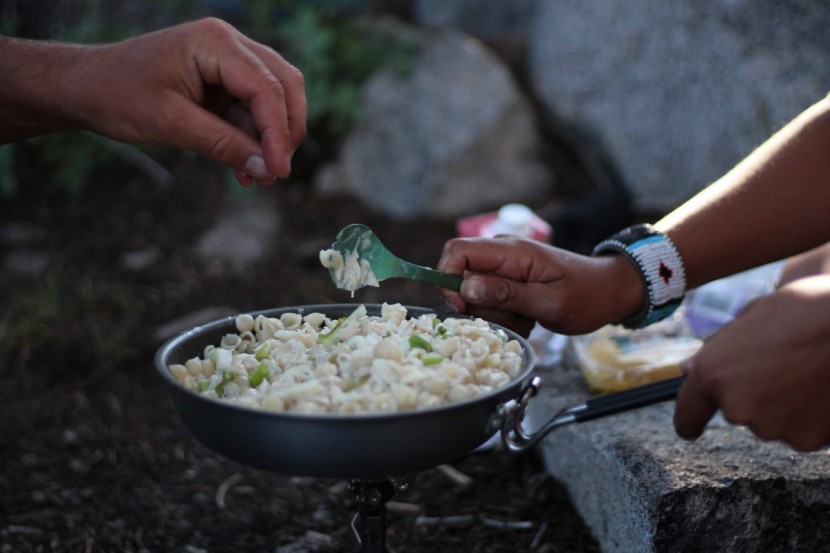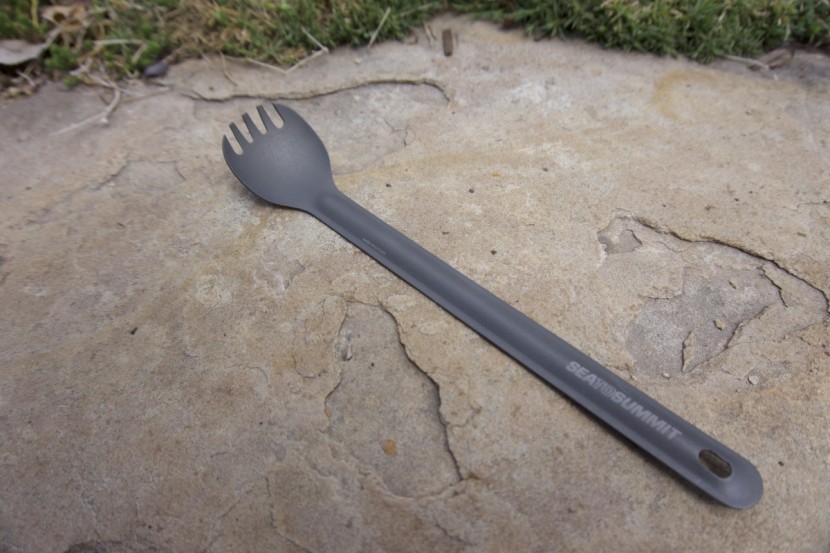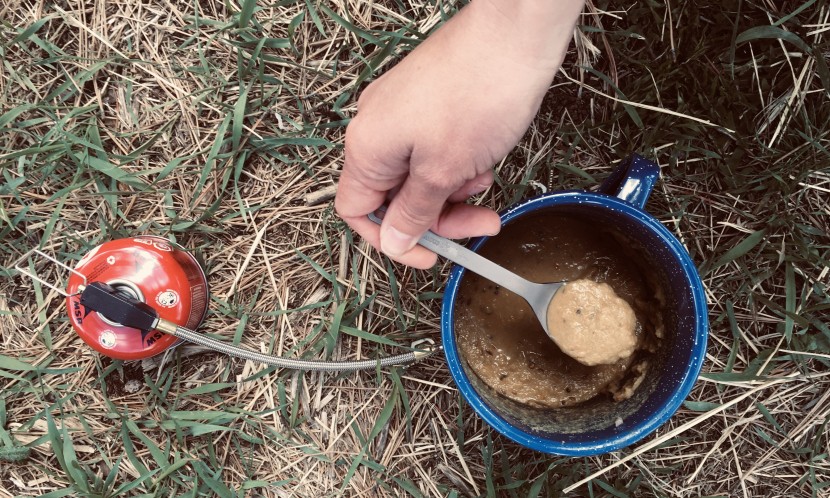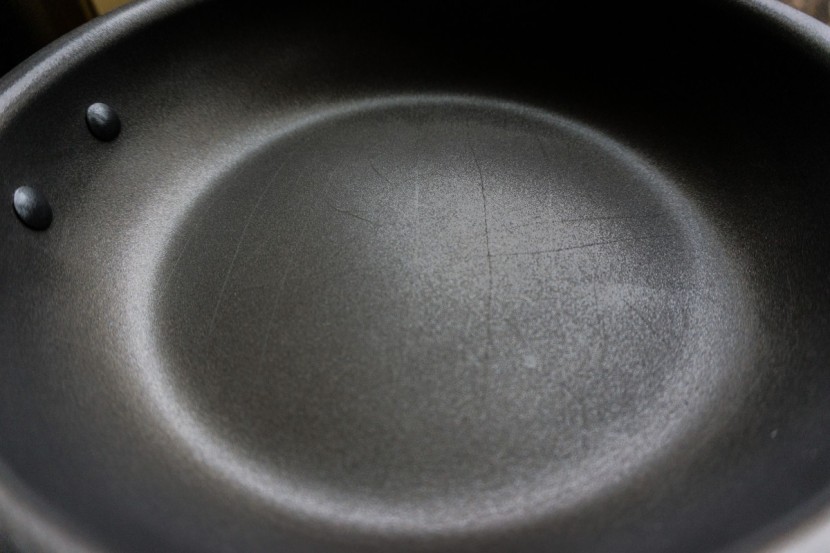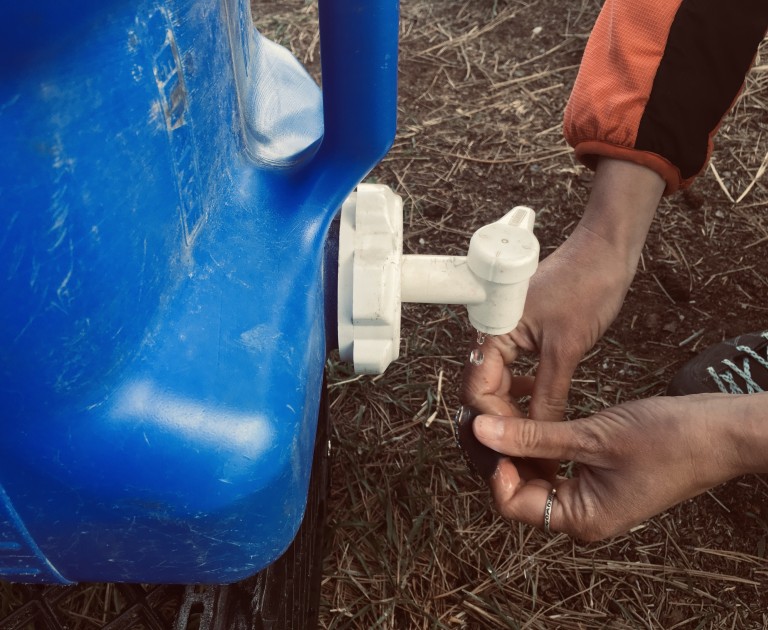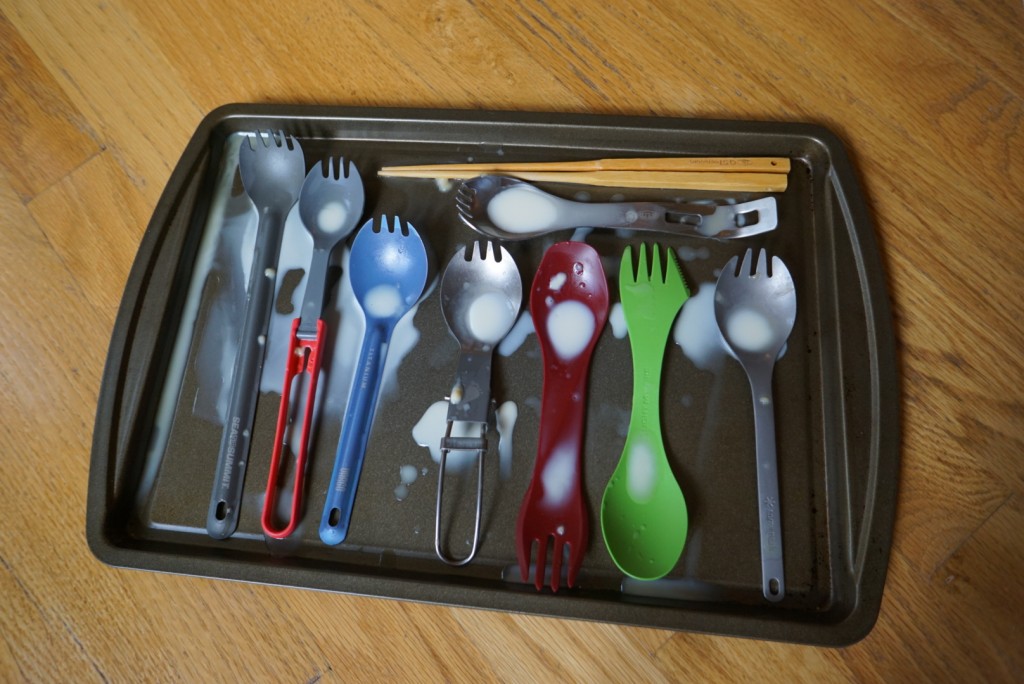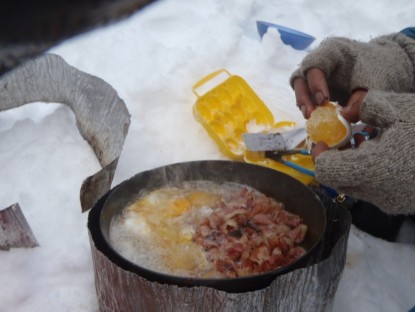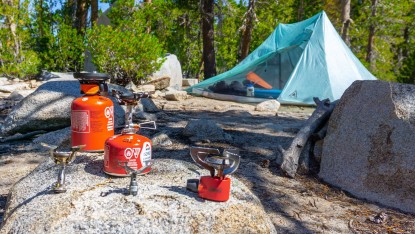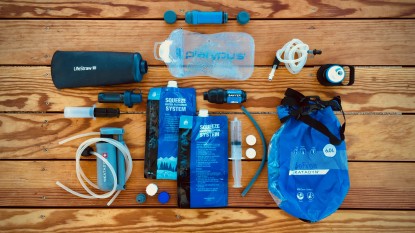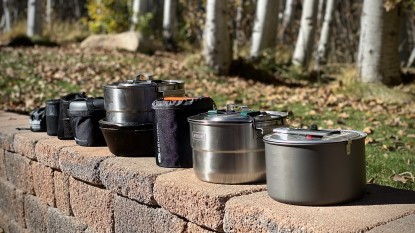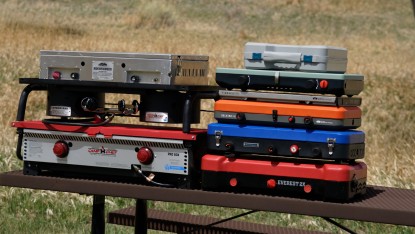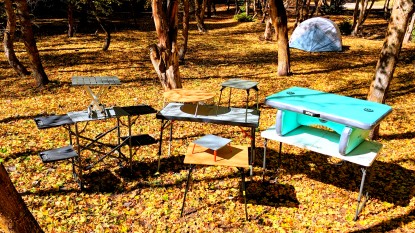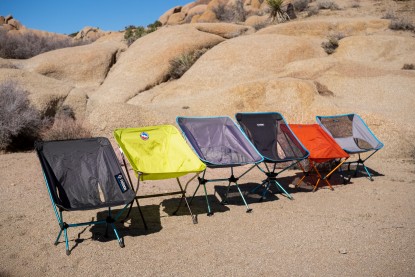After 10 years of analyzing the best sporks, we've bought and tested just about every design out there. This review covers the top 10 models currently available. Our outdoor enthusiasts put these sporks to the test during many activities, from weekday lunch breaks to ultralight backpacking trips. Although it may surprise you that there are even that many different sporks to choose from, don't underestimate the surprising nuances of this seemingly simple yet exceptional hybrid utensil. The most fun, food-portmanteau since brunch, the spork is the fundamental tool for your outdoor cooking and eating requirements.
Eating well in the great outdoors doesn't have to be super complicated. Along with the humble spork, we've tested the best camping stoves, lightweight backpacking stoves, and the top camping cookware to help you find what you need for outdoor dining, whether you're car camping or on a backpacking trip.
Quick Look

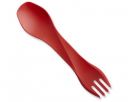
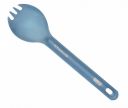
The Best Sporks
Full results from testing 10 top products are in our Product Comparison Table and Analysis & Test Results sections.
The Snow Peak Titanium Spork has the desired versatility of a spork but handles like your typical utensil, providing top-notch comfort alongside quality construction. The design of this model makes it easy to forget you are using an oddly shaped piece of silverware, allowing you to enjoy your meal, whether on the trail or during a workday lunch. The bowl and tines have an ergonomic feel and perform well as a multi-utensil. Whether scooping, stirring, spreading, cutting, or stabbing, this spork is easy to clean, extremely durable, and holds up to regular use, as titanium resists scratches.
We think the many benefits outweigh messy fingers, but this spork quite literally comes up short when trying to reach the bottom of a JetBoil backpacking stove or a bag of dehydrated food. Moreover, its small bowl size makes it a mediocre soup spoon. Still, for most meals, this competitor shines and will keep you happy for many adventures to come. After digging into your first meal, it's easy to see why the Snow Peak Titanium takes the cake.
Read more: Snow Peak Titanium Spork review
Material: Nylon | Weight: 0.53 oz
The humangear GoBites Uno quickly became a favorite for its durability and price. It is by far the most robust model of all the plastic units in our lineup. Not only does the thick design lend to its strength, but it also improves the comfort of the bowl and tines when eating. The sleek nylon material makes it easy to wipe clean when you're on the trail, and the large bowl delivers a satisfying amount of your favorite stew or soup.
The biggest downside of this model is the double-ended design. Outfitted with a spoon on one end and a fork on the other, holding it feels far from natural. Discomfort aside, this design lacks the true versatility of a spork. You must pick between using the spoon or the fork end, and once you make your selection, you're either committed or willing to swap ends and deal with the messy consequences. Despite its minor shortcomings, this spork is undeniably great for the price point. Furthermore, this is a good option for kids, with its resistance to breaking, rounded edges, and affordability.
Read more: humangear GoBites Uno review
Material: Titanium | Weight: 0.3 oz
The Vargo Titanium ULV is an excellent tool for those looking to save on weight without sacrificing function, material, or longevity. This model received high marks in all of our tests: Its low weight and strong material make it ideal for backpacking but comfortable enough to double as an everyday on-the-go utensil. Whether tossed in your backpack, purse, or lunchbox, you will forget it's even there until it's time to feast.
When it comes to ultralight backpacking, this utensil seems like the perfect fit. And yet, if you're planning to rely heavily on dehydrated food bags, its average length presents some challenges. At first, the thin construction may feel slightly unusual in hand, but we found nothing uncomfortable about eating with this spork. The pure-grade titanium material sets it apart from the more common plastic ultralight options, so expect to spend extra for the upgraded material. One of the lightest and most durable options we tested, this was our favorite for heading deep into the backcountry, and we liked it well enough for regular use.
Read more: Vargo Titanium ULV review
Product Comparison Table
Why Trust GearLab
The assessments in this review were made as objectively as possible. First, we scoured the market with a fine-toothed comb before finally selecting the top competitors. After buying them all, we spent months cooking and eating over a hundred meals in a wide variety of environments. From backcountry to sidecountry to front country, we used these products at home for breakfast, work-week lunches, car camping dinners, and as our multi-purpose utensils while trekking, backpacking, and ski touring. We also put them through specific tests to evaluate their comfort while eating, how useful they are for cooking, how simple they are to clean, and how likely they are to break. Our test team also enlisted a crew of friends, family, co-workers, and students to help with the testing and remove some user bias. The result is a comprehensive review that will help you find the perfect cutlery to match your unconventional eating needs.
Our spork testing is divided across four different metrics:- Eating (35% of overall score weighting)
- Durability (30% weighting)
- Cooking (10% weighting)
- Cleaning (15% weighting)
Authors Leslie Yedor, Sara James, and Trish Matheny are well-versed in consuming food far from the traditional dinner table. Leslie's a doctor and an avid outdoorswoman, both of which require frequent eating on the go. She also spent multiple seasons living at the Yosemite Search and Rescue site in Camp 4, where running water and cutlery drawers are frankly non-existent. Sara, a high school teacher, has been traveling internationally for over 30 years and chooses to eat outside whenever possible. A passionate white water kayaker, she has broken a dozen sporks, a handful of kayaks, three ribs, and countless other items, all in the pursuit of more fun. Durability is essential for Sara in the backcountry and daily life, as she shares her office with fifteen 15-year-olds. After many years of backcountry travel over snow, Trish traded in her splitboard for a traditional climbing rack and has been chasing dry rock ever since. After many months of living and traveling in a pop-up camper, Trish has a keen sense for the necessities within a small space as well as ultralight options for fast and light mountain pursuits.
Analysis and Test Results
Following countless meals and targeted assessments, our testers compiled notes and scored each product against identical performance metrics. Each metric is detailed below. We also highlight top performers within each metric. While overall scores are useful, we recommend that you focus on the metrics you care about most when deciding which utensil to bring on your next adventure.
What's the Best Value?
Reusable sporks cost money, even if it's only a little. We believe in reducing the use of disposable plastic cutlery, so we find environmentally sustainable cutlery to be worth the extra expense. In addition to their eco-friendliness, the reusable products offer superior utility and durability to their flimsy fast-food cousins.
The humangear GoBites Uno is inexpensive and scored above average across the board, giving it our best price-to-performance ratio. Still, we appreciate the titanium models — our favorites being the Toaks Titanium, Snow Peak Titanium Spork, and Vargo Titanium ULV — for their longevity. They will likely outlast the plastic models, which means they're a better value in the long run. Just don't lose it.
Eating
Any utensil's primary function is to serve as a vehicle for transporting food from your plate to your mouth. While spoons and forks serve distinct purposes, the spork is the one-man band of utensils. It provides the functionality of both a spoon and a fork, which, theoretically, makes it the perfect utensil for a multitude of food types, especially when on the go or space is limited. We tested our products with various meals, specifically evaluating their ability to maneuver a bowl of ramen noodles and stab meat. Fashion may often be sacrificed for function, but comfort should only be abandoned as the last resort; after all, your food should be the star of the meal, not your utensil. This metric contributed to 35% of the overall product score and factored in how comfortable the model was to use, how well it handled different types of food, and the exact liquid capacity of each bowl.
In this category, the top dog was the Snow Peak Titanium, but the Vargo Titanium ULV and the Toaks Titanium (the non-folding model) came in at a close second. The Snow Peak model takes the cake with its familiar design. It feels normal in your hand, making it easy to forget you are using an unconventional utensil. The bowl's shape is similar to a standard spoon's, making it comfortable in your mouth, and the tines offer a smaller imitation of your classic fork. The Vargo Titanium ULV is not your typical piece of cutlery, reducing its overall weight with its thin metal design. Despite the lightweight feel, it's enjoyable to eat with and easy to overlook the difference. The Toaks Titanium falls somewhere in between the Snow Peak and the Vargo, featuring a smooth bowl and textured handle to increase comfort and dexterity. It weighs the same as the Snow Peak but shares the smooth mouthfeel of the Vargo.
Its unique ability to deliver broth and hearty bits at the same time when eating soup is one of the best things about a hybridized spoon and fork. All single-ended models excelled with ramen. If you are a die-hard ramen lover and either lack chopstick skills or are trying to streamline your ramen-eating experience, sporks belong in your cutlery drawer. If you are more of a ramen traditionalist and chopsticks are a must, the GSI Outdoors Glacier Stainless Spork and Sticks combination are the best of both worlds.
When it comes to stabbing denser food like meat, the metal products with larger tines handle more like a conventional fork. The Light My Fire Titanium performed best at this task, with the Snow Peak Titanium and the Vargo Titanium ULV following close behind.
To determine how much liquid each product can hold, we used a syringe to fill each model's bowl with water until the surface tension broke. Unsurprisingly, the double-ended models with a true spoon on one end held the greatest volume. The LMF Original and Titanium models held an astounding 8.5 cc's, followed by the Vargo model with 5.75 cc's and the humangear GoBites Uno with 4.5 cc's.
Durability
After trekking many miles into the backcountry, the last thing you want is to be stranded without any reasonable way to cook your food and shovel it into your mouth. While everyday use speeds up the inevitable process of entropy—the thermodynamic principle that all things undergo gradual progress towards disorder—how quickly these utensils bend, deform, or break with normal use depends on the design and the material.
The Snow Peak Titanium and Light My Fire Titanium are practically bombproof. We have testers who own models of each that are over five years old and still going strong with no signs of faltering. The Vargo Titanium ULV showed no signs of bending or other weathering throughout our rigorous testing period, while the humangear GoBites Uno showed surprising brawn for its plastic construction. It felt sturdy in hand and wasn't phased by any of the thick, sticky meals we threw at it. However, the other plastic models were prone to bending while stirring and had an insubstantial feel with use. The Light My Fire Original snapped in half early in our testing period while being used to stir breakfast potatoes. Fortunately, it was our only in-use casualty.
To make sure these products were able to stand up to even the most robust culinary experience, we purposefully set out to test their limits. Using a c-clamp, we fixed the handle to a table just up from the bowl where your hand would typically grasp the handle. With the bowl hanging off into space, we hung a water jug filled with weighted amounts of water ranging from 1 lb to 10 lbs, watching for signs of warping.
The Snow Peak, humangear, and the GSI Outdoors models held up to 10 lbs with no signs of flexing. The Sea to Summit and the Vargo showed some give with 10 lbs, but there was no visible change when the water jug was removed. The Toaks Titanium Folding didn't break, but the folding joint released with just 1 lb of weight. The Toaks Titanium non-folding model started to flex after just 3 lbs., then fully bent at around 10 lbs., and we were not able to completely bend it back into its original shape by hand. The MSR Folding showed no lingering signs of damage; however, 5 lbs caused it to bow so severely that the water jug fell off.
Cooking
These products inherently act as multi-tools by combining multiple utensils into one. However, if you plan to use yours on a backpacking trip, it also needs to boost the added utility of just about every culinary gadget except the kitchen sink. We used each of the competitors to prepare and cook multiple meals with a backpacking stove to evaluate their ability to spread, slice, and stir.
The back of the bowl works great to spread things like nut butter, and all of the models performed well at this task. The serrated edge of the Light My Fire Titanium is there to help when basic slicing is required. Most testers felt they could achieve the same slicing power by utilizing the thin wall of the bowl of the metal products like the Vargo Titanium ULV, the Snow Peak Titanium, the Toaks Titanium (non-folding), and the Sea to Summit AlphaLight. Still, slicing is best left up to a small pocket knife that most folks may already have in their backcountry kit.
Stirring may sound like a simple task, but the depth of the pot plays a considerable role. Your typical silverware, as well as the majority of these products, measures 6.5" from tip to tines. This length is perfect for eating but leaves your fingers barely above the surface when stirring a pot of soup. Fortunately, none of the handles became hot with regular use, unless they were rested on the side of the pot, but try to reach the bottom of a dehydrated food bag or a JetBoil stove, and you can forget about keeping your fingers out of the meal. This is the unfortunate case for all of our competitors, save the GSI Spork and Sticks, Sea to Summit AlphaLight - Long, and MSR Folding models. Our favorite of these three by far is the Sea to Summit model. Its 8.5" length provides just the right amount of bonus length to make it eclipse the standard models in this category. It's more stable when stirring thick food and features an angled bowl that is deliberately designed to facilitate scooping and stirring. However, the Sea to Summit does sacrifice some comfort for its practicality, and if it's going to be your “everything” utensil on a backpacking trip and you plan to live on dehydrated food bags, its functionality makes it worth it.
Sauteed veggies with eggs is a fundamental camp meal—just poke your head around the Yosemite Search and Rescue camp, and you'll discover that this team is fueled by almost nothing else. While all of these products were successful at sauteing, we want to note a few caveats. The thin plastic models, such as the Light My Fire Original and the MSR Folding, are prone to melting after many uses. No significant deformity occurred during our formal testing period, but the edge of the bowl that touches the pan became blunted from the repeated contact with the hot pan. And we have, in the past, collectively melted more than a few plastic sporks while cooking. Additionally, if you're planning to use a non-stick pan, beware. Most of the models we tested scratched our GSI Pinnacle Frypan's Teflon coating. The Light My Fire Original spared the non-stick surface, but other models left notable scratches. The GSI Outdoors Spork and Sticks consists of extra-thick stainless steel, so expect some deep gouges if you let this product scrape a non-stick surface.
Cleaning
When you are on the go, cleaning options are limited, so we tested each product to determine how involved the cleaning process needed to be in order to keep the spork looking spick and span.
While not the most hygienic, the simplest means of removing food from your utensil is to wipe it clean. Depending on your standards, this action can be accomplished in a variety of ways. Thus to accommodate even the dirtiest of dirtbags, we investigated each model's ability to be wiped clean by mouth and with a dry towel. Eggs and other proteins stuck a little more to the plastic models, but the titanium versions looked shiny and new after a thorough wiping. It's a useful technique, even in the front country, when you want to toss it in your bag before returning to work. It keeps your bag clean and allows you to do the heavy cleaning once you're back at home. Except for the Sea to Summit AlphaLight, all of the models we tested are dishwasher safe.
Dried sticky food can be a challenge to remove. We prepared a pot of mac and cheese, dipped each product into the sauce, and let them sit out until the sauce formed a crust. We started by rinsing each spork with cold running water and no additional tools other than our fingers. The Snow Peak, the Vargo, the humangear, the Toaks Titanium (non-folding), and the Sea to Summit were the easiest to clean. The two folding models from Toaks and MSR required the addition of a sponge to free the leftover food from the foldable joints. The spork portion of the GSI Outdoor Spork and Sticks was quick and easy, but the chopsticks have tiny holes on the backend, which were almost impossible to clean out entirely and required the use of an unfolded paperclip.
Conclusion
Whether you are eating a summit snack at 10,000 ft. or leftovers in the office breakroom, a spork is your ideal on-the-go utensil. The versatile design of a spoon-fork hybrid maximizes eating efficiency, and the lightweight material makes them excellent for travel. Everyone's got to eat, and this technical piece of cutlery is an essential part of every adventurer's mealtime kit. No longer the nerdy climber's utensil, the awakening in eco-consciousness has enabled people to see the value in carry-your-own cutlery. From big walls to picnic dates, these tools keep you fed and save your fingers for the more important things, like hand jams and puff paint.
—Leslie Yedor, Sara James, and Trish Matheny


